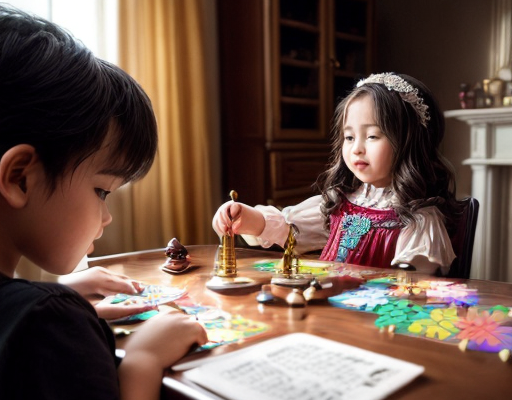
6 Family Games to Learn About Classical Music
6 Family Games to Learn About Classical Music
Introduction
Classical music is known for its complexity and rich history. It can be a challenge to introduce this genre to young children, but with the right approach, it can become a fun and educational experience for the whole family. In this article, we will explore six family games that can help you and your children learn about classical music in an interactive and engaging way.
1. Composer Bingo
Composer Bingo is a game that introduces players to famous composers and their music. Create bingo cards with the names of composers or their famous works. Use classical music recordings and have players mark the corresponding composers or works on their cards. The first player to get five in a row wins!
2. Musical Memory Match
Musical Memory Match is a twist on the classic memory game. Create pairs of cards with different classical music instruments or symbols, such as a violin, piano, or treble clef. Mix up the cards and lay them face down. Each player takes turns flipping over two cards. If they match, the player keeps the pair and gets another turn. If they don’t match, the cards are flipped back over, and the next player goes. The player with the most pairs at the end wins!
3. Orchestra Guessing Game
The Orchestra Guessing Game tests players’ knowledge of different instruments and their sounds. Prepare a collection of audio clips featuring different orchestral instruments or sections. Play each clip and have the players guess which instrument or section they are hearing. Keep score and award points for correct answers. This game can be played individually or in teams.
4. Musical Charades
Musical Charades is a game that combines classical music with the classic charades format. Create a list of famous classical music pieces, composers, or musical terms. Divide into teams and take turns acting out the items on the list without speaking. The other team members must guess what is being acted out. Time each round and keep score. The team with the most points at the end wins!
5. Name That Tune
Name That Tune is a game that tests players’ ability to recognize and identify classical music pieces. Create a playlist of short excerpts from different classical music compositions. Play each excerpt and have the players write down the name of the piece and composer. After playing all the excerpts, reveal the correct answers and count how many each player got right. The player with the most correct answers wins!
6. Composer Timeline
The Composer Timeline game helps players learn about the chronological order of famous composers and their works. Create a timeline on a large piece of paper or poster board, including the names of composers and the years they were active. Provide a set of composer cards with their names and pictures. Each player takes turns placing the composer cards on the timeline in the correct order. The player who completes the timeline with the fewest mistakes wins!
Conclusion
Introducing classical music to your family can be an enjoyable and educational experience. By playing these family games, you and your children can learn about composers, instruments, musical terms, and develop a deeper appreciation for the world of classical music. So gather your family, turn on some classical music, and get ready to have fun while learning!

